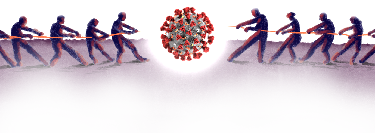
[ad_1]
From healthcare providers to policing and vaccination drives, the Indian authorities has rolled out a collection of bold know-how platforms in an try to streamline providers for its 1.3 billion inhabitants. Yet a lot of these tasks, including Aadhaar, the nation’s controversial biometric identification system, and mass CCTV surveillance, have exacerbated the marginalization of poor and weak teams.
In May, a group of legal professionals and researchers from the Criminal Justice & Police Accountability Project, a Bhopal-based initiative specializing in the criminalization of marginalized caste communities, revealed an essay on the web site of The Transnational Institute, a world analysis group linking students and policymakers. It outlined how the usage of regulation enforcement know-how, together with biometrics and video surveillance, is accelerating caste-based discrimination in India’s second largest state, Madhya Pradesh.
The group examined the police remedy of socially excluded teams in Madhya Pradesh. I spoke with Nikita Sonavane, a lawyer and the challenge’s co-founder to seek out out extra.
Coda: What drove you to review the hyperlinks between regulation enforcement know-how and caste prejudice in India?
Nikita Sonavane: We are on the trail to digitizing the policing system. So, as individuals who work with the communities which are continuously focused by the police, we’ve seen that the surveillance strategies — the way in which that sure communities have been policed traditionally — is one thing that will likely be bolstered by the appearance of latest know-how. For us it was essential to see what the potential ramifications of this kind of wide-scale digitization in India may very well be.
Coda: Law enforcement companies in India have lengthy monitored sure caste teams as a result of they’re perceived to be “likely” to commit crimes. What is digital surveillance doing to worsen this type of caste prejudice?
NS: The precept of legal regulation is harmless till confirmed responsible. That precept is already overturned for lots of those communities as a result of their criminality is presumed. And now that criminality and inequality will likely be digitally encoded. To put it very merely, it can give rise to this parallel digital caste system.
Coda: In your essay you write about India’s Crime and Criminal Tracking Network & Systems (CCTNS), which hyperlinks each police station within the nation on-line in real-time and permits for regulation enforcement to entry a digital repository, which incorporates police crime reviews and the biometric knowledge of people resembling images and fingerprints. What are your key considerations right here?
The CCTNS has info not nearly the one that has been thought-about to be a routine offender — by way of the place they stay, what sort of belongings they personal and different demographic particulars about them — but additionally has particulars about their buddies and their members of the family.
Coda: We’ve seen Prime Minister Narendra Modi’s authorities launch technology-based platforms like CoWin throughout the pandemic, with a purpose to enhance vaccination drives. CoWin has obtained widespread criticism on grounds resembling digital exclusion. Why is that this authorities so eager on know-how?
NS: It’s twofold. For the federal government it’s all the time a query of having the ability to exert a better diploma of management on its residents, significantly since 2014, when the present authorities got here to energy.
With the CoWin portal, the vaccination program has been diminished to a kind of lottery system at greatest. Because we’re dwelling in a rustic the place there’s an intensive digital divide, the vast majority of the inhabitants of this nation won’t be able to entry that portal and subsequently won’t be able to get vaccinated.
Coda: You refute the federal government’s declare that techniques such because the CCTNS will permit for “objective,” “smart” error-free, algorithm-based policing. Do you suppose such know-how may very well be environment friendly in any situation?
NS: Absolutely not. The concept that know-how goes to make one thing that’s inherently biased, oppressive and rooted in rules of casteist predictive policing is completely flawed. We have already seen that occur with CCTNS. Because in a number of states these types of techniques have change into the premise for surveilling sure communities, sure neighborhoods.
This just isn’t an implementation query, this can be a design query that can’t be fastened by know-how or anything. If something, it can create this facade of effectivity and nothing extra.
[adinserter block=”4″]
[ad_2]
Source link
